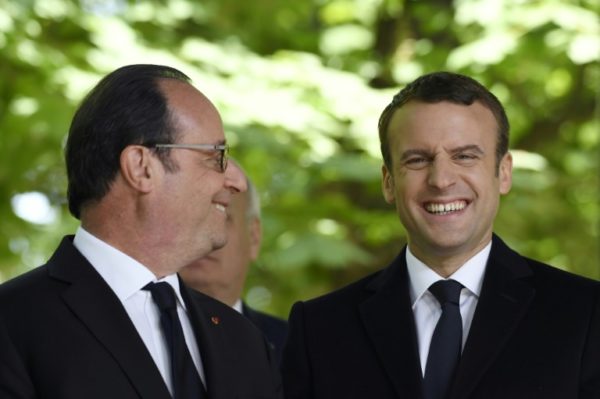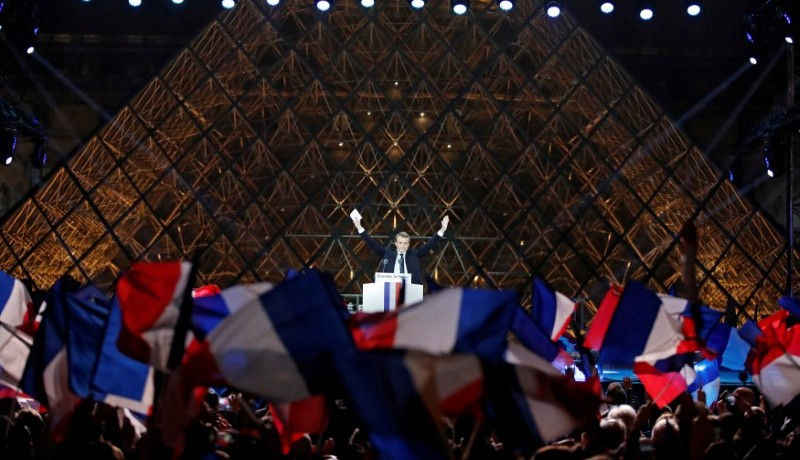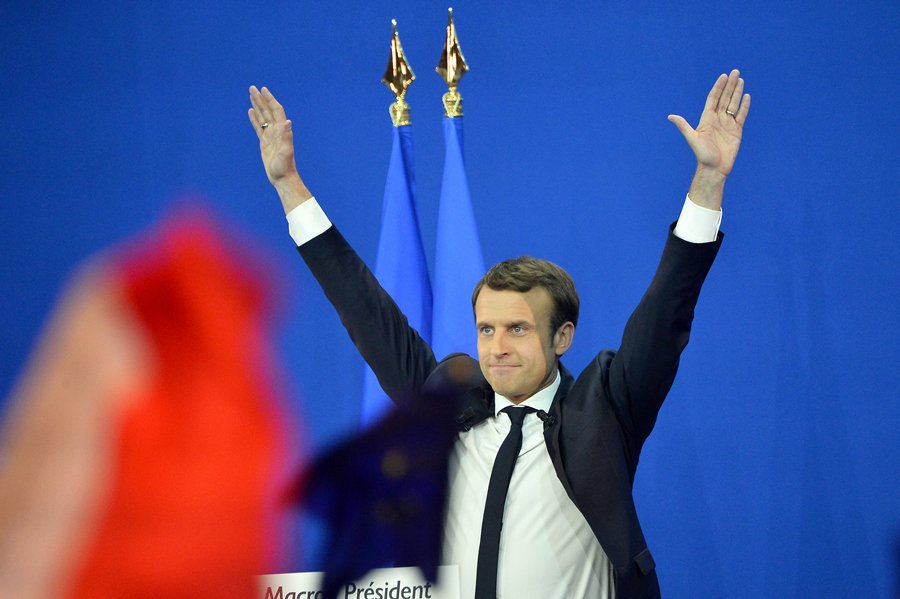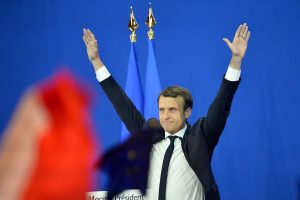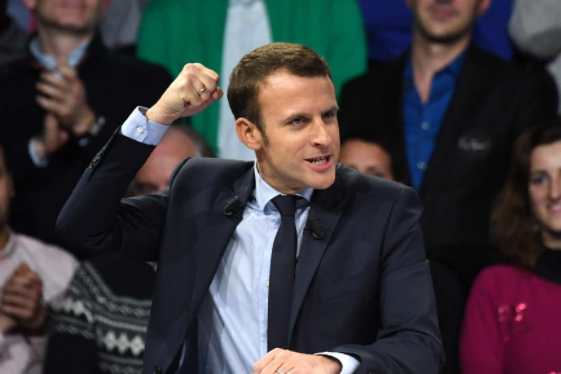Emmanuel Macron will be inaugurated as France’s youngest ever president today, succeeding President Francois Hollande, the Socialist whose five years in power was plagued by stubborn unemployment and bloody terror attacks.
The ceremony will take place at 0800 GMT.
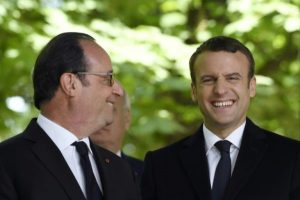
Macron, a 39-year-old centrist, will face daunting challenges to rejuvenate the economy and breathe new life into the beleaguered EU.
After ascending the red carpet at the Elysee Palace in central Paris, Macron and Hollande will have a private meeting in the president’s office where Macron will be given the codes to launch France’s nuclear weapons.
Hollande is clearly delighted at the election of the former investment banker, who scored a clear victory over far-right candidate Marine Le Pen on May 7.
The current president launched Macron’s political career, plucking him from the world of investment banking to be an advisor and then his economy minister.
“I am not handing over power to a political opponent, it’s far simpler,” Hollande said on Thursday.
Security will be tight with around 1,500 police officers deployed near the presidential palace and the nearby Champs Elysees avenue and surrounding roads will be blocked off.
At the end of the ceremony, a 21-gun salute will ring out from the Invalides military hospital on the other side of the River Seine.
After a formal lunch, Macron will visit Paris’s town hall, a traditional stop for any new French president in his “host” city.
He will be accompanied by his wife Brigitte, his 64-year-old former drama teacher whose romance with the new president, and their 25-year age gap, has already generated media interest around the world.
On Monday, Macron is expected to reveal the closely-guarded name of his prime minister, before flying to Berlin to meet German Chancellor Angela Merkel.
It is virtually a rite of passage for French leaders to make their first European trip to meet the leader of the other half of the so-called “motor” of the EU.
Pro-EU Macron wants to push for closer cooperation to help the bloc overcome the imminent departure of Britain, another of its most powerful members.
He intends to press for the creation of a parliament and budget for the eurozone.
Merkel welcomed Macron’s decisive 32-point victory over Le Pen, saying he carried “the hopes of millions of French people and also many in Germany and across Europe”.
In June, Macron faces what the French media are calling a “third round of the presidential election” when the country elects a new parliament in a two-round vote.
The new president needs an outright majority to be able to enact his ambitious reform agenda.
The year-old political movement “Republique en Marche” (Republic on the Move, REM) that he formed to launch his presidential bid intends to field candidates in virtually every constituency in the country.
It unveiled 428 of its 577 candidates this week, saying it wants to bring fresh faces into the National Assembly lower house of parliament.
Half of them have never held elected office, including a retired female bullfighter and a star mathematician, and half of them are women.
Macron met many of the candidates gathered at a Paris museum on Saturday and told them they had an “immense responsibility”.
“You are the new faces of French politics,” some of those present quoted him as saying.
Macron won one of the most unpredictable French elections in modern history marked by scandal, repeated surprises and a last-minute hacking attack on his campaign.
Just as campaigning ended, hundreds of thousands of emails and documents stolen from his campaign were dumped online, leading Macron to call it an attempt at “democratic destabilisation”.
US authorities have said they believe Russian hackers were behind the attack.
The election saw voters reject France’s two traditional political forces of left and right. Their candidates were eliminated in the first round.
Unpopular Hollande was the first to bow to the rebellious mood in December as he became the first sitting president not to seek re-election in the French fifth republic, founded in 1958.
